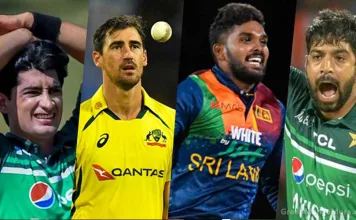Venturing through the new Valhalla expansion in God of War Ragnarök, I eagerly immersed myself in Kratos’ journey, fueled by the desire to uncover the next chapter, even in the face of challenging gameplay.
Cinematic Marvels and a Twist of Roguelike Adventure
In recent God of War releases—the 2018 reboot and Ragnarök—the captivating cinematic storytelling, enhanced by tight camera angles and stellar motion capture, brings the mythical characters to life. Valhalla takes a bold step further, weaving the structure of a roguelike into the narrative. This genre involves repeated attempts to conquer escalating challenges—a clever approach for Kratos to confront his troubled past.
Roguelike Therapy: A Clever Gameplay Blend
Valhalla’s roguelike elements follow a familiar pattern: navigating through monster-filled terrains, gathering buffs, and facing a final boss. Yet, what sets it apart is the poignant discussions between Kratos and characters like Mimir during these endeavors. It’s almost like a therapeutic session, a gameplay style I found refreshing and meaningful.

Virtuous Cycles and Motivational Dialogues
The synergy of narrative depth with roguelike gameplay creates a virtuous cycle. Each attempt feels more than just chasing high scores; it becomes a meaningful journey. Motivational dialogues aimed at both Kratos and the player forge a connection, offering encouragement that resonates beyond the digital realm.
Combat Challenges and Narrative Resilience
Navigating Valhalla’s intricate combat—juggling weapons, shields, runic powers, a rage meter, and executing dodges—posed occasional mental challenges. Yet, the narrative-driven motivation within the game provided the resilience needed to persevere. It’s a departure from conventional roguelikes, infusing purpose into every gaming session.
Progress Gates and Consistent Narratives
Valhalla strategically uses roguelike structures to regulate progress, aligning with the narrative. While some may view this as an added challenge, it occasionally feels like an imposed limit to instigate further attempts. The justification for multiple encounters with the end boss ties seamlessly with Kratos’ healing journey, though smaller stories might seem fragmented for engagement.
Also Read: 10 Things You Might Have Missed in GTA 6 Trailer
Embracing Recursive Storytelling Trends
In tune with gaming trends, Valhalla contributes to the wave of recursive storytelling. Similar to titles like Hades and Returnal, it leverages mythology, while also resonating with diverse game genres like Outer Wilds. Valhalla stands as a prominent example of merging narrative with gameplay mechanics.
Valhalla’s Essence: Embracing Change Step by Step
Valhalla, a standout in adopting the roguelike structure, transcends the typical goal of reaching the game’s end. It imparts a powerful message—accepting the potential for self-change, one step at a time. Trusting the process becomes the central theme, offering players a unique and transformative gaming experience.
Check the Current Price of God of War Ragnarok: Click Here For PS4, Click Here For PS5
God of War Ragnarök: Valhalla is currently accessible for free on PS4 and PS5, inviting players to delve into a gaming journey that extends beyond traditional storytelling, intertwining narrative intricacies with immersive gameplay.






